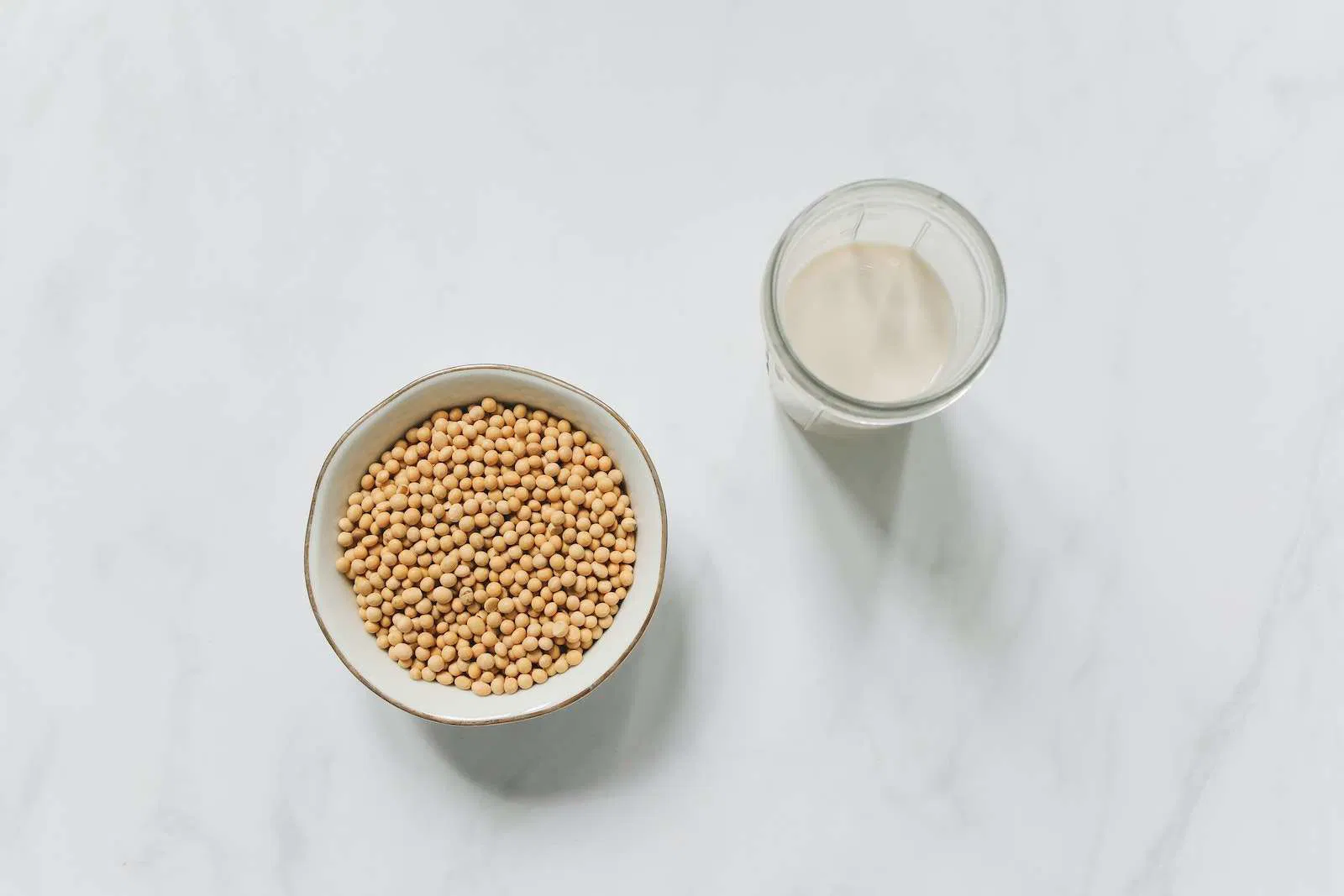It’s time to talk about the controversial and often misunderstood legume, soy.
I see this is such an area of confusion and controversy in the online nutrition space. To begin I want to talk a bit about critical thinking, because it’s always very well to share a bunch of studies with you, but unless you have a bit of a deeper understanding of how science works it’s easy to be fooled by the next post you see on Instagram!
Generally when we’re trying to answer a question through research we are looking at different types of studies, and there are many types. Some are done in cells in Petri dishes, some in animals like mice and rats, and then some in humans. In humans there are also different types of studies, some have more control, and some have less. We generally want to look at a variety of studies to form our conclusions, giving the most weight to the more controlled studies.
The thing I often see with people sharing extreme evidence online – for example seeing a post saying that soy is toxic. They are often citing animal studies, where a rat is fed a potent extract from soy in hundreds or thousands of times the doses that humans would get from regular consumption. The first problem with this is that we would never reach these doses, and the second one is that it isn’t done in humans! While animal studies can give us some idea of how things might work, we can all agree that humans are very different to rats or mice – and just because we see something happen there has no bearing on what the effect will be in humans!
I saw a tweet a while ago from someone saying ‘if soy really gave you boobs it would be the best selling supplement in the world for woman’ and when you think about it for a second, doesn’t that sum up the argument. Applying this to the argument that soy feminises men, in the real world do we see men who eat a lot of soy develop breasts? For example in Japan where men have some of the highest soy consumption in the world. We don’t.
When we apply critical thinking do we even need evidence? Obviously we still need evidence, but oftentimes when we see a confusing post on social media, we don’t actually need to understand how science works, many claims can be dismantled by critical thinking.
So let’s get into some of the research around soy. Beginning with an understanding of the different types of human studies and how we can use them to form conclusions. So I talked earlier about studies that follow people over time, these are epidemiological studies. They look at populations and whether or not people develop disease, they can control for certain factors but since they are just observational, and not very controlled, we can’t use them to form conclusions but we can use them to generate hypotheses. Next we have what is often called the ‘gold standard’ for research – randomised controlled trials. These sort of trials have two groups, an intervention group and a control group. One group makes a change, and the other doesn’t and we see what happens. These are more controlled because they are generally in a clinical setting and there is a non-intervention group to compare to. However it’s difficult to do a long clinical trial, as they are very expensive and hard to get people to commit for a long period of time. What we are really looking for is converging lines of evidence, we want to see similar results from all different types of studies. When we see this we can really start to get a stronger sense of what is happening and see the bigger picture as a whole. This is where the next type of study comes in – called a Meta Analysis, these studies look at many different studies together and pool the results to give us essentially an overview of a body of research and draw stronger conclusions than we can from looking at single studies individually. So now let’s get into some of the recent meta analyses on the research of soy in humans.
#1 Soy is bad for male hormones
In this meta analysis of 41 clinical trials in humans they found no effect on testosterone in men from soy consumption
https://pubmed.ncbi.nlm.nih.gov/33383165/
#2 Soy is bad for thyroid health
This meta analysis looked at 18 human trials and they found no affect on thyroid hormones
https://www.nature.com/articles/s41598-019-40647-x
#3 Soy is inflammatory
This meta analysis looked at 36 studies. They looked at one inflammatory marker CRP (C Reactive Protein) and found that natural soy products actually decreased inflammation, while processed soy products had little effect.
https://pubmed.ncbi.nlm.nih.gov/30314925/
This meta analysis looked at a different marker of inflammation, it included 28 clinical trials and also found soy products decreased inflammation.
https://pubmed.ncbi.nlm.nih.gov/32814603/
#4 Soy is bad for the environment
It’s true that forests are being cut down to plant soy (and other crops) and this is an incredibly important issue. Are people eating tofu to blame though? When we look at the data: More than three-quarters (77%) of global soy is fed to livestock for meat and dairy production. Most of the rest is used for biofuels, industry or vegetable oils. Just 7% of soy is used directly for human food products such as tofu, soy milk, edamame beans, and tempeh. The idea that foods often promoted as substitutes for meat and dairy – such as tofu and soy milk – are driving deforestation is a common misconception. If you really care about deforestation and the environment, you should really cut down on your meat consumption. https://ourworldindata.org/soy
Benefits of soy
Soy is a great source of protein, healthy fat and fibre as well as being a good source of the essential micronutrient calcium, iron, manganese, copper and selenium. For the best calcium content when eating soy products look for calcium set tofu, or calcium fortified soy milks.
This meta analysis looked at 23 different studies with over 330,000 human participants. They found soy intake helped reduce risk of all cause mortality, which is dying from any reason. They found it reduced the risk of many different cancers, as well as heart disease.
https://www.sciencedirect.com/science/article/abs/pii/S2212267219303624
Studies also show that soy can help our heart health and lower our risk of heart disease and stroke. It may also help to lower our blood pressure, improve fertility, reduce menopause symptoms, improve bone health, reduce the risk of breast, endometrial and digestive cancers, lower our risk of developing type 2 diabetes and may even increase cognitive function!
https://www.healthline.com/nutrition/is-soy-bad-for-you
So to sum it all up, while people may demonise soy online, often by citing studies looking at incredibly high doses in animals, when we look at actual human health outcome data we can see that soy foods aren’t just not bad for us, they may actually be very beneficial to include in a balanced diet.




0 Comments